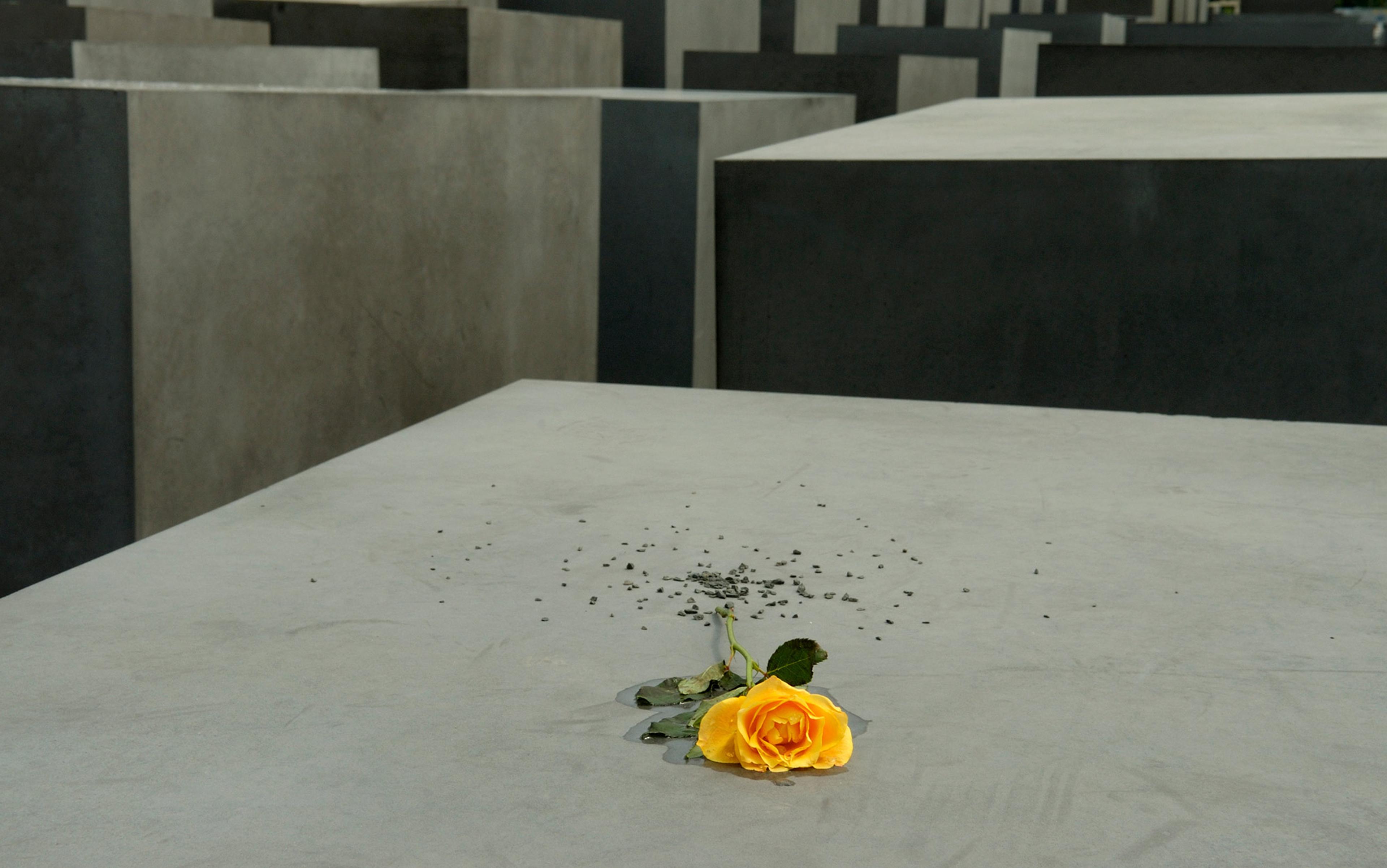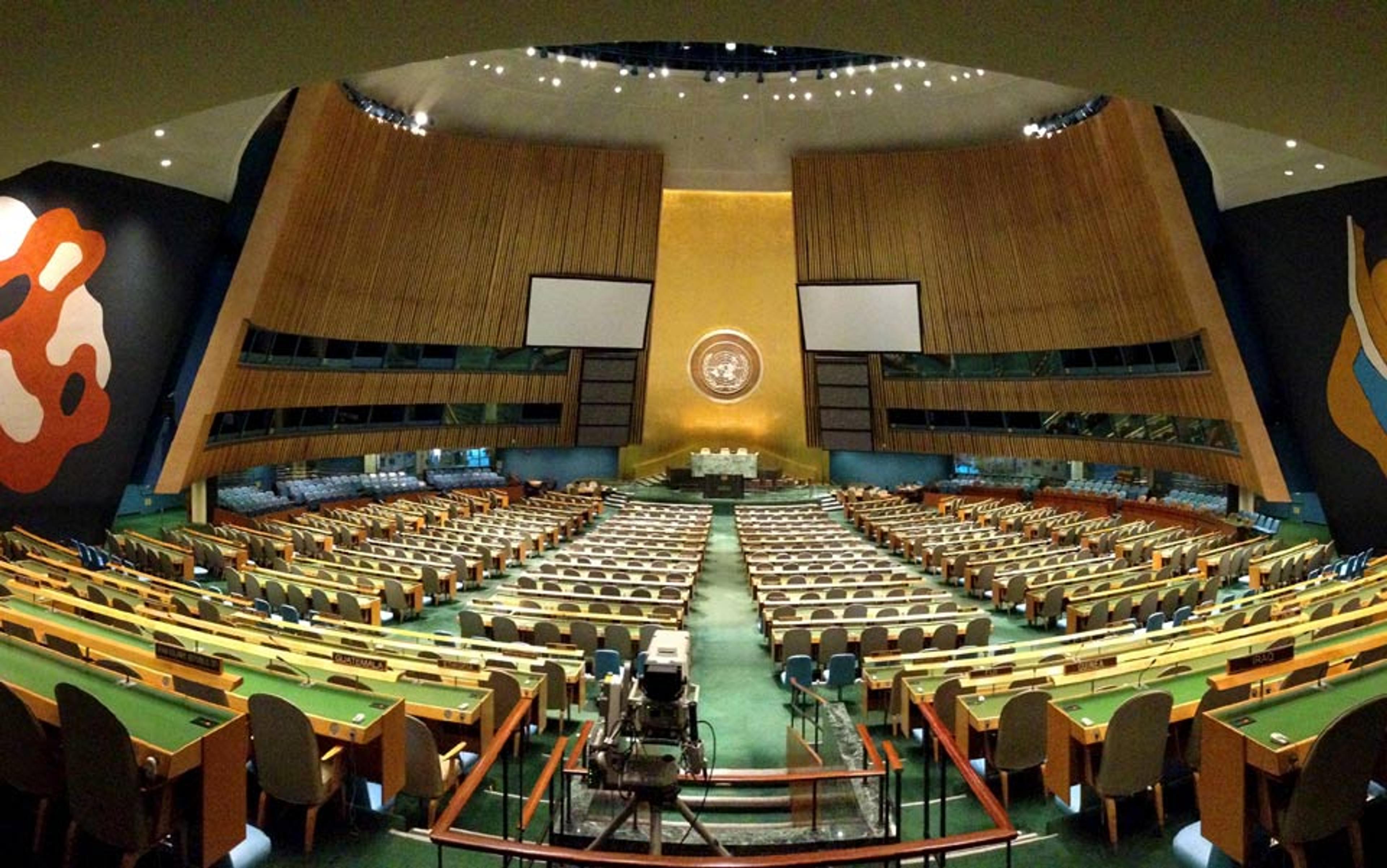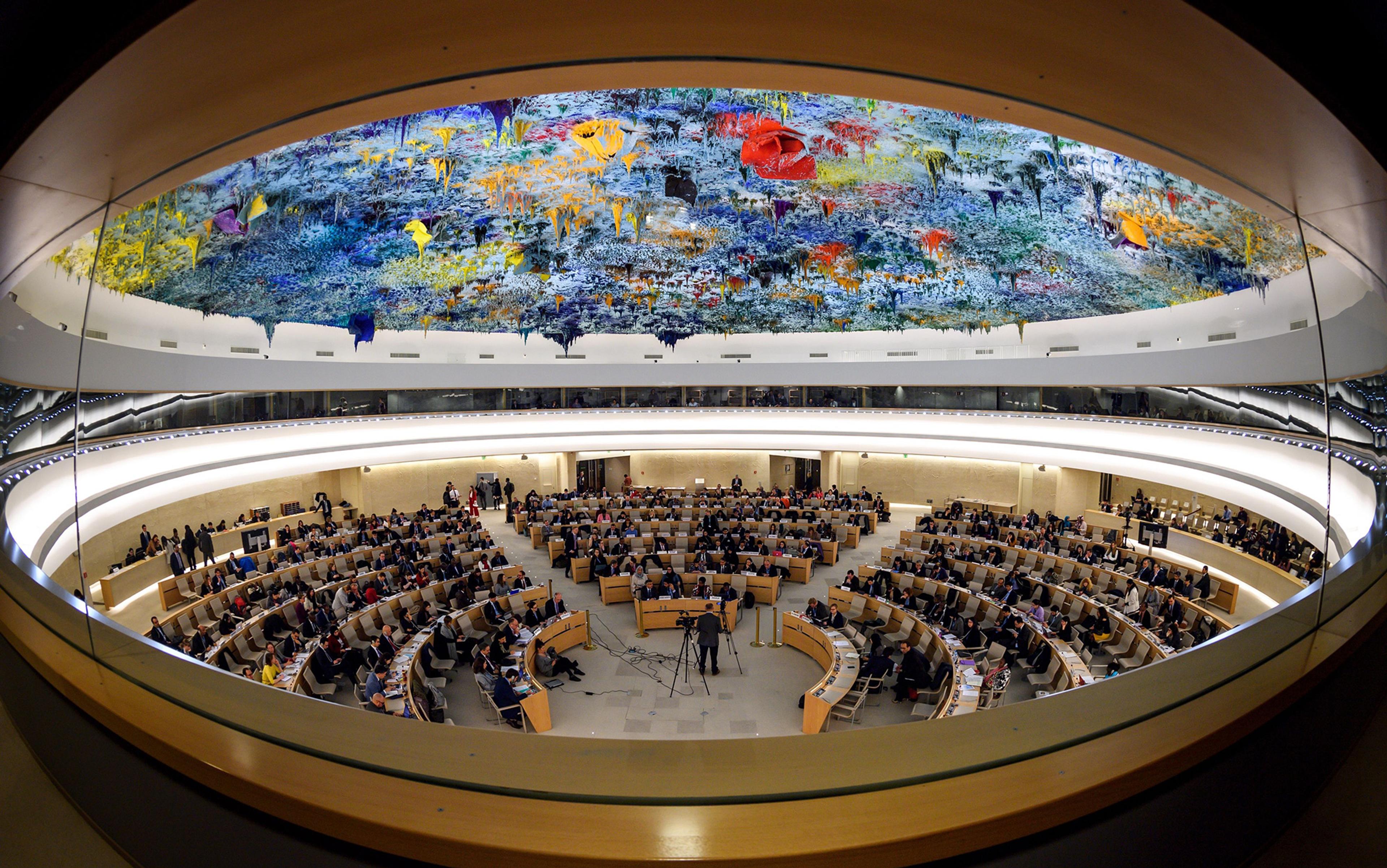Demands to recognise the ‘right of a state to exist’ ring from op-ed pages to US Congressional committee rooms. This demand is most frequently encountered in the context of Israel and the framing of its wars with Palestinians and other regional forces. The rhetorical force of the question is obvious. If Israel is facing a challenge to its very ‘right to exist’ from its enemies, then criticism of Israel’s military actions must remain muted and qualified. This framing also implies a premise that existing states have a presumptive right to exist, or that to deny the right of state X or Y to exist is morally repugnant because it implies not the juridical dissolution of a state but the destruction of the people living within it.
This framing can feel like pure political rhetoric not meant to entertain a serious response or debate. It is meant to preempt any actual public debate over the past and present of Israel/Palestine. However, the demand to recognise a state’s right to exist raises a real but overlooked philosophical question: what exactly does it mean to say that a state has a right to exist?
Note that the statement ‘state X has a right to exist’ is not synonymous with the statement ‘the citizens of state X have the following rights’ – to life, to civil and human rights, to cultural flourishing. The assertion locates the possession of a right in the state itself and, moreover, it stresses the right not to derivative authority (to tax, to enforce laws, to control borders) but to the prior right to exist per se. Is this a coherent claim to be pressed on behalf of any state?
States come into and pass out of existence all the time. Here is an incomplete list of states that have existed since the Second World War that no longer exist: Czechoslovakia, Yugoslavia, the Soviet Union, South Yemen, South Vietnam, West and East Germany, and the United Arab Republic. The further back in time we go, the more defunct states we find: the Third Reich, the Ottoman Empire, Prussia, the Austro-Hungarian Empire, the Russian Empire, the Polish-Lithuanian Commonwealth, the Holy Roman Empire, and so on. Other states still exist under the same name but have contracted and no longer rule the same territory (for example, Pakistan, Sudan).
So if ‘state X has a right to exist’ means that ‘if state X existed and then no longer existed, there has been some wrong done to state X’ then it follows that there is some wrong or injustice done to those states in question in that they no longer exist. I suspect few today would hold that the dissolution of Czechoslovakia, the Soviet Union, Yugoslavia or the United Arab Republic entailed a violation of the right of those states per se to exist. The idea that states are entities or persons with rights to exist separate from the rights of persons living within those states seems untenable. States often come in and out of existence with no wrong being done to the people in question per se. It thus follows that to question the right of state X qua state X to exist is not necessarily morally repugnant.
The demand to recognise the right of a state to exist is not the same as the claim ‘All persons have a right to live under a state.’ The claim is that a specific state, with a specific identity, has a right to exist. When does such a state exist? And how can we differentiate between the claims: (a) ‘persons have a right to live under a state’ and (b) ‘a specific state with a specific identity has a right to exist’?
A state is a sovereign administrative apparatus that governs a given territory, controlling entry to and exit from that territory, and possessing supreme power within that territory. What is, however, meant by a state having a specific identity such that the same people and territory could be ruled by different states at different times? States have markers of unique identity, such as names and flags. But states are also defined through their constitutions – not just technical matters of the organisation and division of powers, but the way in which states represent certain populations while expressing certain identities, values and goals, and distribute membership, rights and representation.
It seems absurd to assert that the Bourbon Monarchy and the French Republic were the same state
States can cease to exist through significant-enough change in any of these fundamental aspects of their particular identity: the territory and population they rule, but also their fundamental constitutional order or regime type. The examples I have given are all quite obvious. Certain sovereign state apparatuses with specific names and constitutions ceased to govern the territories in question, and the names of those prior countries were removed from the map. In some cases, the entire previous administrative apparatus was disassembled and replaced.
This can be harder to see in cases of regime change when the territory governed by a state does not fundamentally change. But I submit that, in many cases of profound-enough revolution, it is implausible to say that the same state governs the territory and population before and after the transformation. Consider some of the most obvious cases: England in 1649, France in 1789, China in 1911 and again in 1949, Russia in 1917, and Iran in 1979. In all of these revolutions, the land and people more or less remained the same, as well as the common, vernacular name of the country, at least at the time of the revolution itself. But the regime-change in these paradigmatic cases was almost total at the level of ideology, legitimation, administration, legality and organisation of power. It seems absurd to assert that the Bourbon Monarchy and the French Republic were the same state. Certainly, if a Royalist had demanded reformers or revolutionaries between 1789-92 recognise the right of the state to exist, what they would have meant was not some state over the territory of France but specifically the monarchy.
Now consider two other cases: Zimbabwe circa 1980 and South Africa between 1993-97. From 1965-79, Rhodesia existed (albeit not internationally recognised) on the same territory with the same population as Zimbabwe since 1980. With the end of colonialism and the emergence of a postcolonial order, there was continuity in territory and population, but a change in name as well as its fundamental constitution and moral foundation. Given the depth of this transformation, I regard it as most plausible to claim that Rhodesia ceased to exist as a state, and that Rhodesia and Zimbabwe are not the same state.
A new name makes it easier to see the transformation, but the name change is a symptom rather than the actual determining factor. Between 1961-93, the Republic of South Africa existed (under two distinct constitutions) as a state with a specific territory and citizenry. Of course, these were the decades of apartheid. In 1993, as part of the transition from apartheid, the Republic of South Africa adopted an interim constitution that fundamentally changed the racial basis of the political order, adopting a permanent constitution in 1996 on the basis of racial equality.
Did the state that existed in South Africa between 1961-93 cease to exist with the adoption of a new, racially egalitarian constitution? On the one hand, there was a continuity in the territory, population and name between 1961-93 and 1993-present. An entity called ‘The Republic of South Africa’ never ceased to exist. There is certainly some continuity in the state administrative apparatus and social order. However, I think it is wrong to say that the states that existed between 1961-93 and 1993-present are the same state. Certainly, if the apartheid regime had offered to release Nelson Mandela from prison on the condition that he and the ANC ‘recognise South Africa’s right to exist’, what they would have meant was not some state over the territory of South Africa but the existing regime.
In other words, the identity of a particular state is to a large extent constituted by its regime. A state changes its existence through a deep-enough change in its essence (its regime). The various waves of democratic transitions from fascist or communist regimes on this view ended the previous states and created new ones. Even where some state called ‘Romania’, ‘Bulgaria’, ‘Hungary’ or ‘Portugal’ continued to exist (and this would be no small matter for nationalists), the specific state governing those territories and people changed. If the preceding is plausible, to call for a state’s non-existence is often to call for regime change rather than harm to a specific population. In fact, it is often to call for the liberation of that very population.
So states can disappear in processes of reconstitution without harm or wrong being done. Let’s call this ‘wrongless state destruction’. But obviously not every transformation, destruction, dissolution or recombination of a state is harmless or wrongless. It may be the case that, all things considered, the continued existence of a particular state is the morally best state of affairs. If so, can we specify the conditions in which a state has a right to exist? In order to answer that question, we first have to clarify what we mean by a ‘right’.
One of the dominant theories of what a right is, the interest theory of rights, was elaborated by the philosopher Joseph Raz. Raz gives us the following definition of a right: ‘“X has a right” if and only if X can have rights, and, other things being equal, an aspect of X’s wellbeing (his interest) is a sufficient reason for holding some other person(s) to be under a duty.’ This gives us the conceptual components of rights-talk: to talk about a right, we need to clarify: (a) which agent we are concerned with, (b) what interest of that agent is at stake and why it is so vital or weighty, (c) which other agents may be in a position to impact that interest positively or negatively, and (d) what kinds of duties those other agents may thus be under. But these all generate questions and problems, rather than easily establishing what rights exist.
The very notion of a state having a right to exist raises two obvious dilemmas. First, is a state such a thing that can have rights and is the state’s interest or wellbeing the morally relevant factor in its existence? Second, and more importantly, which specific other agents are thought to be under a duty to recognise its existence and what does that duty require of them?
For anyone but anarchists, states can clearly have rights derived from the interests of their citizens. If states can have derivative rights (to impose security, tax, enforce laws, enter treaties), it is plausible that they can have rights to exist derived from their citizens’ interests in such an administrative apparatus existing.
Who is under an obligation, and in which conditions, to recognise a specific state’s right to exist?
Consider the following argument. Persons have rights to such goods as security, economic stability, rule of law, and human and political rights. These rights can be secured only through a sovereign agency with the power to secure those goods. Therefore, persons have a right to live under a state and thus a state has a right to exist derived from the interests of the persons subject to it.
Consider a further argument. Persons have a right to live under a state and thus a state has a right to exist derived from the interests of the persons subject to it. Other agents wrong the persons living under a state by trying to destroy the sovereign agency that guarantees them important moral goods. Therefore, other agents are under a moral duty to not destroy this state.
I find these two arguments quite plausible. However, what these arguments do not establish yet is which other agents are under which duties to recognise the right of a state justified on these grounds to exist. Who is under an obligation, and in which conditions, to recognise a specific state’s right to exist?
There are two agents clearly under such a duty. First is the state itself, specifically its rulers or officials. If a state is legitimate only if it guarantees the people under it the above-mentioned goods and rights, then the rulers and officials of a state are under an obligation to not violate said goods and rights of that people. Second are other states or powers who are bound to not undermine or harm those fundamental interests of the people ruled by a state.
The deceptive simplicity of the question of a state’s right to exist is a function of the fact that states are frequently threatened by other states for those other states’ interests. Leaving aside, for example, deep questions of (say) Ukraine’s relations with all of its citizens, it seems obvious that Ukraine has a right vis-à-vis Russia to exist. Even if some abstract entity called the ‘Ukrainian state’ is not the ultimate rights-holder over the people and territory ruled by that state until 2014 (when Crimea was annexed), a fortiori the Russian state is not the rights-holder over the people and territory of Ukraine.
However, other states are not the only other agents against whom states claim rights to exist. They claim these rights against persons and populations. In some of these cases, it is far less obvious that these other agents (other persons) lack the interests or standing to seek the dissolution or radical transformation of a state, or that they are under a moral duty to recognise that state’s right to exist.
The two arguments I introduced above explaining the interests that can justify the existence of a state assume without argument the existence of a population on a given territory that has a shared set of interests and a possible shared will in desiring sovereign agency. Those arguments overlooked three important elements. First, they establish a population’s right to a state, but not to a particular state with a particular cultural or ethnic identity. Second, they did not address how specific populations come to live in particular territories in the first place. Finally, they did not address how specific territories come to be juridically demarcated from other territories.
Populations (demoi) are frequently formed as a result of profound, often extremely violent, demographic changes within a territory. States are almost always formed by the arbitrary and violent demarcation of a territory without the democratic consent of all populations who might have legitimate interests in this decision. Political theorists often refer to this as the ‘boundary problem’ or ‘demos problem’. Democrats want the legitimacy of a constitutional order to derive from the actual, tacit or hypothetical consent of the people to be governed in a certain way. But the delineation of the people itself is not something that can usually be decided democratically.
The examples here are too numerous to count. How did a ‘democratic people’ emerge in the settler colonial states of the Americas and Australasia but through various forms of violence, land theft, genocide, expulsion, exclusion or confinement? How were ethnic majorities established in the successor states of multiethnic empires except through frequent ethnic cleansing, population exchanges or forcible assimilation? Even in contexts where extreme violence or ethnic cleansing was not the immediate cause or consequence of state formation, the drawing of boundaries when territories are partitioned or delineated invariably involves arbitrary decisions to include or exclude that cannot be democratic all the way down.
One might respond that if almost no states are founded in moments of perfect, non-violent consent by a population that includes no deep exclusions or forced inclusions over a clear territory not disputed by any other group of people (let’s call this the ‘Iceland Standard’), then almost no state is perfectly legitimate and therefore almost no state is uniquely illegitimate. But that would be implausible and dismissive of the inherent rights of persons to justice. It is much more plausible to say that all states are ongoing projects of establishing legitimacy and approaching something like justice and consent-worthiness.
The statute of limitations on historical justice seems impossibly vague and indeterminate
If almost all states are formed through historical injustice, a state’s ‘right to exist’ is relative to the outstanding claims of justice against it. There is no single answer to how historical injustice should be remedied. Sometimes partition, secession or the formation of new borders is the most democratically plausible and least harmful answer. Sometimes, it is restoration or transfer of sovereignty over land and its resources. Sometimes, it is the right of displaced populations to return to their former homes. Sometimes, it is democratisation or regime-change within a given state. Some of these answers will require ending existing states or reconfiguring them, and some will require justice-based reforms within the territorial and constitutional confines of the existing state.
It must be noted that there are some complex philosophical questions at stake that cannot be fully resolved here. I will acknowledge one in particular: the ubiquitous problem of vagueness. Vagueness usually points to the problem of identifying when one thing (not a heap of sand) passes into another thing (a heap of sand) when no single change (the addition of a single grain) clearly marks this transformation. Vagueness afflicts two problems within the present discussion.
First, we might say that some historical injustices are alive and salient but some are so far in the past that seeking to reverse them seems to be only to call for new and greater injustices. But what exactly the statute of limitations on historical justice is seems impossibly vague and indeterminate. The legacy of North American slavery is certainly still salient, but what about the conquest of Constantinople or the expulsion of Muslims and Jews from Andalusia?
Second, there is also a certain vagueness in identifying when a state’s internal regime-change constitutes the definitive end of one state and the emergence of another. Some constitutional changes are profound enough to do this, but not all, and it might not be possible to say exactly what changes result in this ontological transformation from one state to another. But this does not affect the claim that states never have fully resolved and permanent rights to exist in their present form that create duties of acquiescence or recognition in all populations affected by them.
Since most states are founded in some form of violence, exclusion, expulsion or injustice, it is morally incoherent to say that persons or populations are thus under a duty to recognise that historical event as legitimate. At a minimum, defenders of the state would have to show that restitution for that historical injustice has been made or that preserving the present status quo is least likely to produce further injustices or atrocities.
The rhetorical force of the demand to recognise the right of a state to exist is that states cease to exist only when their populations are destroyed in large part or in whole. But that is false. States can cease to exist by being incorporated into another state, being partitioned into smaller states, or by significant-enough regime-change that transforms the essence of a state. All of these processes can happen with greater or lesser degrees of violence.
It doesn’t follow that if a state ceases to exist with no significant loss of life on the part of the host population that, therefore, no wrong has been done. States can be conquered rapidly by foreign states with relatively little loss of life, but with great harm to the conquered people’s civil, political and human rights. Regimes that lack legitimacy can be toppled by revolutions that subsequently go on to harm and wrong the people they govern to a greater extent than even the previous illegitimate regime. People(s) can be harmed and wronged by the loss of their state per se and by harm to other interests.
But people can be harmed without being wronged. And people can be harmed and wronged with those harms and wrongs being justified, all things considered. Enslavers and other elites of the Confederacy were harmed by Reconstruction, but they were not wronged. Germans expelled from Czechoslovakia after the Second World War may have been harmed and (individually) wronged but perhaps this wrong was justified, all things considered, given the legacy of the Nazi occupation.
Not all instances of state destruction are harmless, wrongless or moral improvements
The crucial point is to maintain the emphasis on the fact that profound-enough changes in a state’s governing system and ideology can constitute the end of one state and the beginning of another. In the case of states that govern significant populations without giving them equal civil and political rights, or that enjoy demographic majorities because of ethnic cleansing or partition, redressing those historical injustices may result in the creation of what must be called new states. Yet this need not involve any atrocities against existing populations. Again, the paradigmatic case is South Africa, which underwent a profound regime change without mass atrocities. It is thus coherent, and often morally correct, to deny that a state has a right to exist without implying the destruction of the people living within that state.
Of course, not all instances of state destruction are harmless, wrongless or moral improvements. States destruction can lead to a great many atrocities or other humanitarian catastrophes. At this very moment, as I finish this essay, the world is awakening to the collapse of the Assad regime in Syria, while a great many questions remain about what awaits that long-suffering and tormented country from its new rulers.
Rectifying historical wrongs or political injustices must be balanced against their humanitarian costs and a responsibility for the future being created. This, I submit, is a more honest way of speaking about the right of states to exist. That is, to say something like: ‘The humanitarian risks of correcting historical injustice and restoring the rights of those whose control over their land was illegitimately taken away are simply too great. Justice cannot be served except at a great humanitarian cost, most likely to both populations.’ That statement has as much wisdom or validity as any moral compromise in conditions of asymmetric power, domination and uncertainty, but at least reflects the moral honesty and decency of holding in view that particular states exist today as a result of very specific and very recent historical injustices and atrocities. Yet this view is never the final word. It never extinguishes the possibility of another world where oppression and dispossession give way to justice, dignity and equality. After all, we take for granted today many social and political realities that seemed beyond anyone’s imagination barely a generation ago.






